news
South African anti-apartheid icon, Desmond Tutu, died on Sunday aged 90
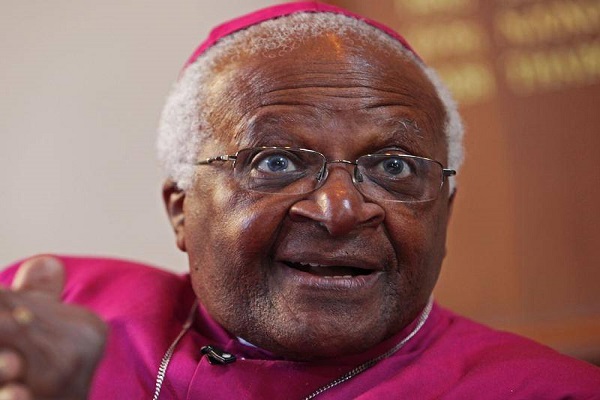
 South Africa’s president, President Cyril Ramaphosa, announced the Archbishop’s death on Sunday.
South Africa’s president, President Cyril Ramaphosa, announced the Archbishop’s death on Sunday.
Ramaphosa said, “The passing of Archbishop Emeritus Desmond Tutu is another chapter of bereavement in our nation’s farewell to a generation of outstanding South Africans who have bequeathed us a liberated South Africa.
“Desmond Tutu was a patriot without equal; a leader of principle and pragmatism who gave meaning to the biblical insight that faith without works is dead.
“A man of extraordinary intellect, integrity and invincibility against the forces of apartheid, he was also tender and vulnerable in his compassion for those who had suffered oppression, injustice and violence under apartheid, and oppressed and downtrodden people around the world.
“As Chairperson of the Truth and Reconciliation Commission he articulated the universal outrage at the ravages of apartheid and touchingly and profoundly demonstrated the depth of meaning of ubuntu, reconciliation and forgiveness.
“He placed his extensive academic achievements at the service of our struggle and at the service of the cause for social and economic justice the world over.
“From the pavements of resistance in South Africa to the pulpits of the world’s great cathedrals and places of worship, and the prestigious setting of the Nobel Peace Prize ceremony, the Arch distinguished himself as a non-sectarian, inclusive champion of universal human rights.
“In his richly inspiring yet challenging life, Desmond Tutu overcame tuberculosis, the brutality of the apartheid security forces and the intransigence of successive apartheid regimes. Neither Casspirs, teargas nor security agents could intimidate him or deter him from his steadfast belief in our liberation.
“He remained true to his convictions during our democratic dispensation and maintained his vigour and vigilance as he held leadership and the burgeoning institutions of our democracy to account in his inimitable, inescapable and always fortifying way.
“We share this moment of deep loss with Mam Leah Tutu, the Archbishop’s soulmate and source of strength and insight, who has made a monumental contribution in her own right to our freedom and to the development of our democracy.
“We pray that Archbishop Tutu’s soul will rest in peace but that his spirit will stand sentry over the future of our nation.”
Desmond Tutu won the Nobel Peace Prize in 1984 for combatting white minority rule in his country.
The first black Archbishop of Cape Town and bishop of the Church of the Province of Southern Africa (now the Anglican Church of Southern Africa), Tutu received many international accolades during his long and illustrious life, including the Nobel Peace Prize in 1984; the Albert Schweitzer Prize for Humanitarianism in 1986; the Pacem in Terris Award in 1987; the Sydney Peace Prize in 1999; the Gandhi Peace Prize in 2007; and the Presidential Medal of Freedom in 2009.
Initially trained as a teacher after leaving school, he began studying theology after having taught at a high school for three years and was ordained as a priest in 1960. He continued his studies in England, culminating in a Master of Theology degree in 1966.
In 1975 he was appointed Dean of St Mary’s Cathedral in Johannesburg, the first black person to hold that position. From 1976 to 1978 he was Bishop of Lesotho, and in 1978 became the first black general secretary of the South African Council of Churches.
After the fall of apartheid, Tutu headed the Truth and Reconciliation Commission. He retired as Archbishop of Cape Town in 1996 after serving in that capacity for 10 years, and was made emeritus Archbishop of Cape Town, an honorary title that is unusual in the Anglican church.
In 1997, Tutu was diagnosed with prostate cancer and underwent successful treatment in the US. He was readmitted to hospital at various times thereafter to address the cause of recurring infections. Nevertheless, he has remained in good spirits.
Tutu is survived by Leah. They met while at college, and shared four children.
news
NDDC Prepares for Agric Summit, Meets Stakeholders, Says MD

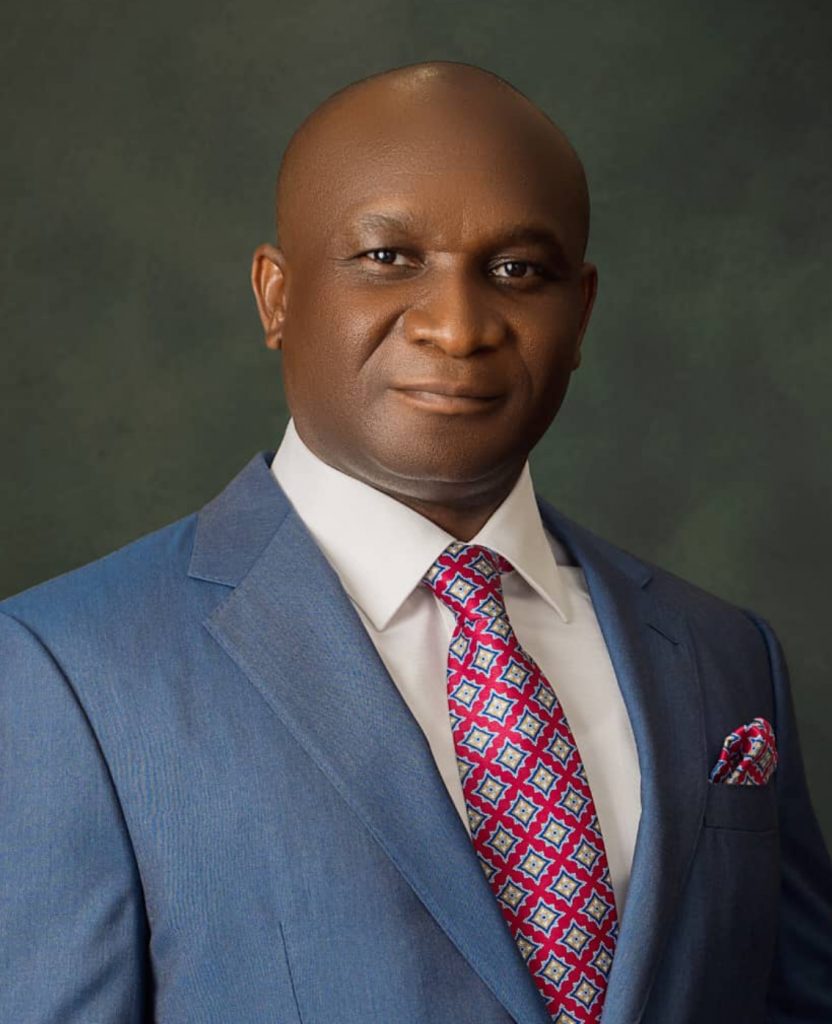 The Niger Delta Development Commission, NDDC, is hosting a two-day strategic meeting with commissioners, permanent secretaries, and directors of agriculture, fisheries & livestock in the nine Niger Delta states.
The Niger Delta Development Commission, NDDC, is hosting a two-day strategic meeting with commissioners, permanent secretaries, and directors of agriculture, fisheries & livestock in the nine Niger Delta states.
The meeting, which kicks off on Thursday in Port Harcourt, Rivers State, would be addressed by the NDDC Managing Director, Dr Samuel Ogbuku, who is expected to outline his plans for a retreat and agricultural summit for the Niger Delta region in line with President Bola Ahmed Tinubu administration’s agrarian programme.
An invitation extended to the stakeholders by the NDDC Director of Agric and Fisheries, Dr Winifred Madume, stated that the Commission was determined to make the Renewed Hope Agenda of the Federal Government a reality in the Niger Delta region by ensuring food security for the people.
Recall that the NDDC Chief Executive Officer had earlier assured that the Commission would align with the President’s vision for agriculture, to ensure that agriculture served as a platform for peace and security in the Niger Delta region.
Ogbuku promised: “Any time from now, the NDDC will convene a mini-agricultural retreat for state governments and commissioners of agriculture. States in the region have their various areas of strength in agriculture. We aim to establish regional agricultural integration, which will later evolve into a regional agricultural summit where a comprehensive master plan for the region’s agriculture will be developed.”
The Managing Director affirmed that the NDDC was engaging all stakeholders to ensure harmony and cooperation in developing the hitherto neglected Niger Delta region.
Reflecting on the Federal Government’s agricultural policies, Ogbuku stressed the need to bring them home to the Niger Delta region, noting that the NDDC would continue to promote policies and programmes that enhance food security and poverty reduction in the states .
news
Update : Tinubu approves 15% import duty on petrol, diesel, aimed to protect local refineries
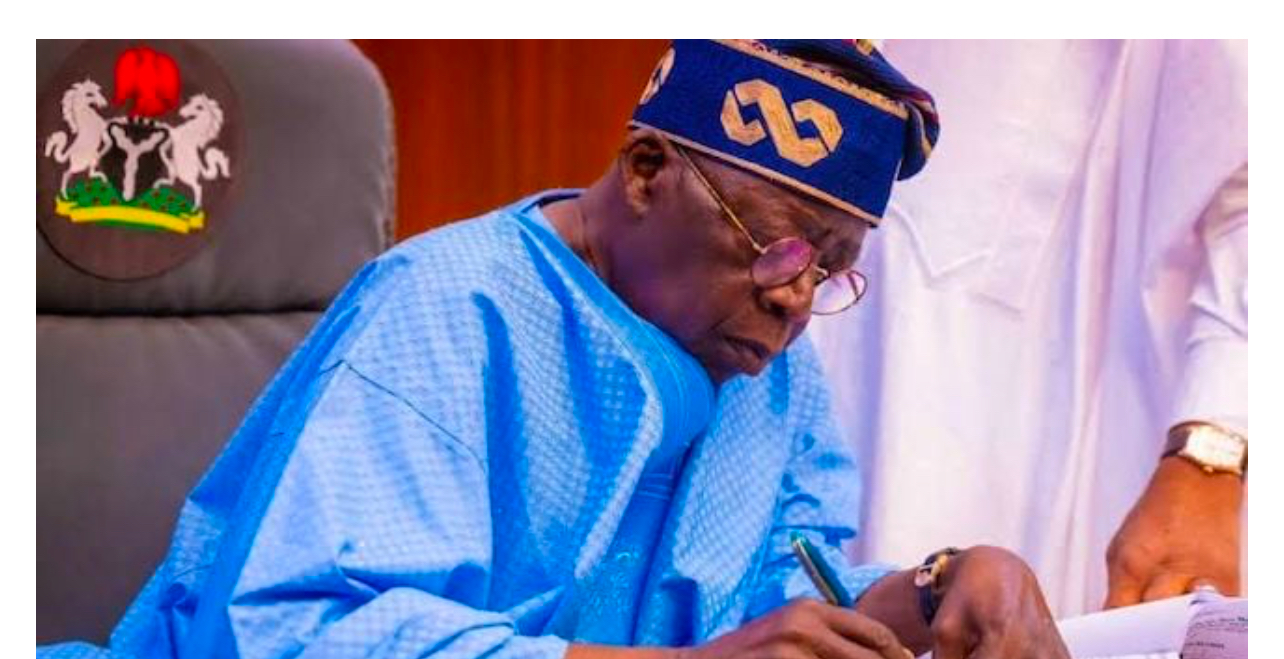
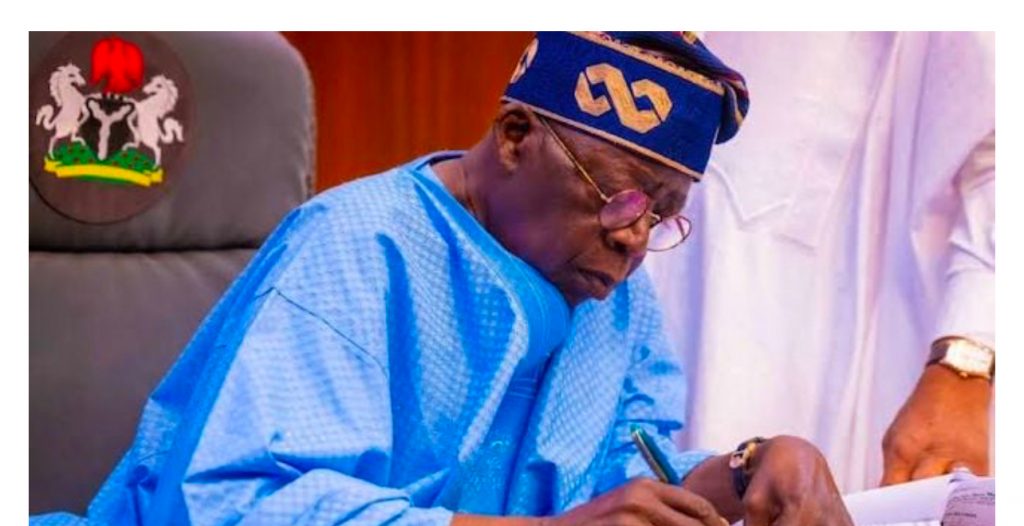
President Bola Tinubu has approved the introduction of a 15 per cent ad-valorem import duty on petrol and diesel imports into Nigeria.
The initiative is aimed at protecting local refineries and stabilising the downstream market, but it is likely to raise pump prices.
In a letter dated October 21, 2025, reported publicly on October 30, 2025, and addressed to the Federal Inland Revenue Service and the Nigerian Midstream and Downstream Petroleum Regulatory Authority, Tinubu directed immediate implementation of the tariff as part of what the government described as a “market-responsive import tariff framework.”
The letter, signed by his Private Secretary, Damilotun Aderemi, and obtained by our correspondent on Wednesday, conveyed the President’s approval following a proposal by the Executive Chairman of the FIRS, Zacch Adedeji.
The proposal sought the application of a 15 per cent duty on the cost, insurance and freight value of imported petrol and diesel to align import costs with domestic market realities.
Adedeji, in his memo to the President, explained that the measure was part of ongoing reforms to boost local refining, ensure price stability, and strengthen the naira-based oil economy in line with the administration’s Renewed Hope Agenda for energy security and fiscal sustainability.
“The core objective of this initiative is to operationalise crude transactions in local currency, strengthen local refining capacity, and ensure a stable, affordable supply of petroleum products across Nigeria,” Adedeji stated.
The FIRS boss also warned that the current misalignment between locally refined products and import parity pricing has created instability in the market.
“While domestic refining of petrol has begun to increase and diesel sufficiency has been achieved, price instability persists, partly due to the misalignment between local refiners and marketers,” he wrote.
He noted that import parity pricing- the benchmark for determining pump prices, often falls below cost recovery levels for local producers, particularly during foreign exchange and freight fluctuations, putting pressure on emerging domestic refineries.
Adedeji added that the government’s responsibility was now “twofold, to protect consumers and domestic producers from unfair pricing practices and collusion, while ensuring a level playing field for refiners to recover costs and attract investments.”
He argued that the new tariff framework would discourage duty-free fuel imports from undercutting domestic producers and foster a fair and competitive downstream environment.
According to projections contained in the letter, the 15 per cent import duty could increase the landing cost of petrol by an estimated N99.72 per litre.
“At current CIF levels, this represents an increment of approximately 99.72 per litre, which nudges imported landed costs toward local cost-recovery without choking supply or inflating consumer prices beyond sustainable thresholds. Even with this adjustment, estimated Lagos pump prices would remain in the range of N964.72 per litre ($0.62), still significantly below regional averages such as Senegal ($1.76 per litre), Cote d’Ivoire ($1.52 per litre), and Ghana ($1.37 per litre).”
The policy comes as Nigeria intensifies efforts to reduce dependence on imported petroleum products and ramp up domestic refining.
The 650,000 barrels-per-day Dangote Refinery in Lagos has commenced diesel and aviation fuel production, while modular refineries in Edo, Rivers and Imo states have started small-scale petrol refining.
However, despite these gains, petrol imports still account for up to 67 per cent of national demand.
news
JUST IN: Tinubu decorates Service Chiefs with new ranks
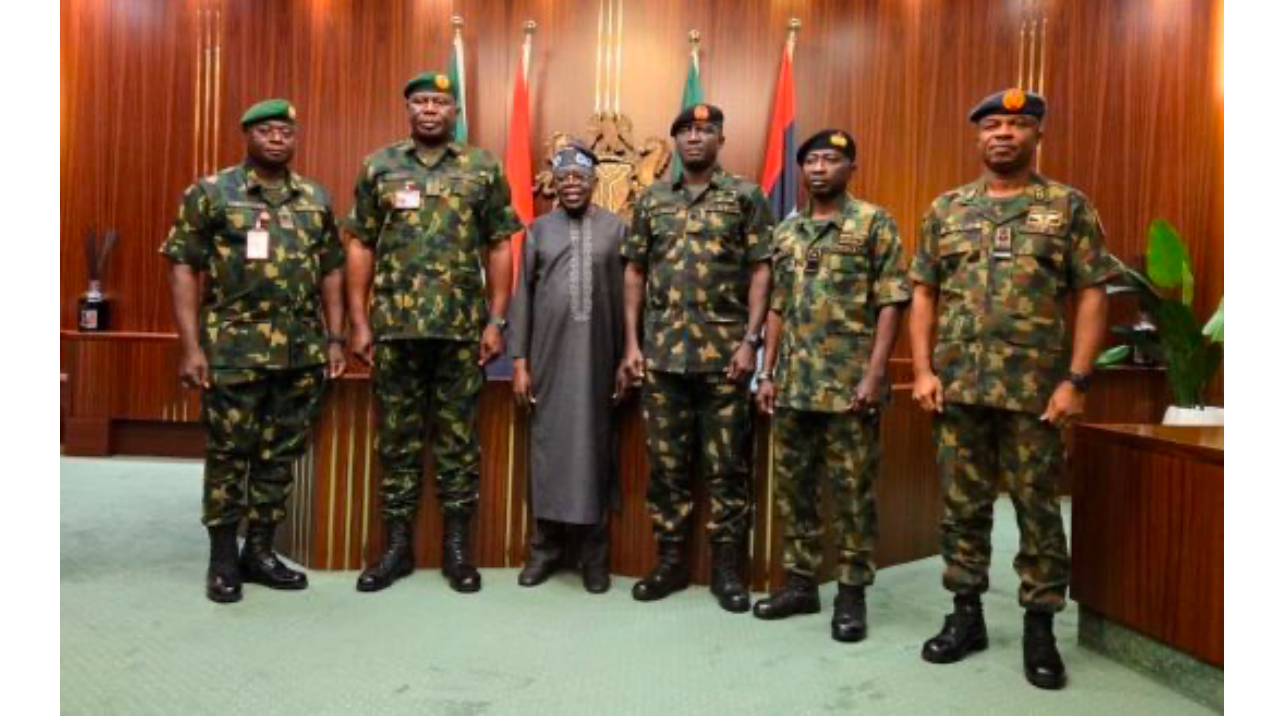
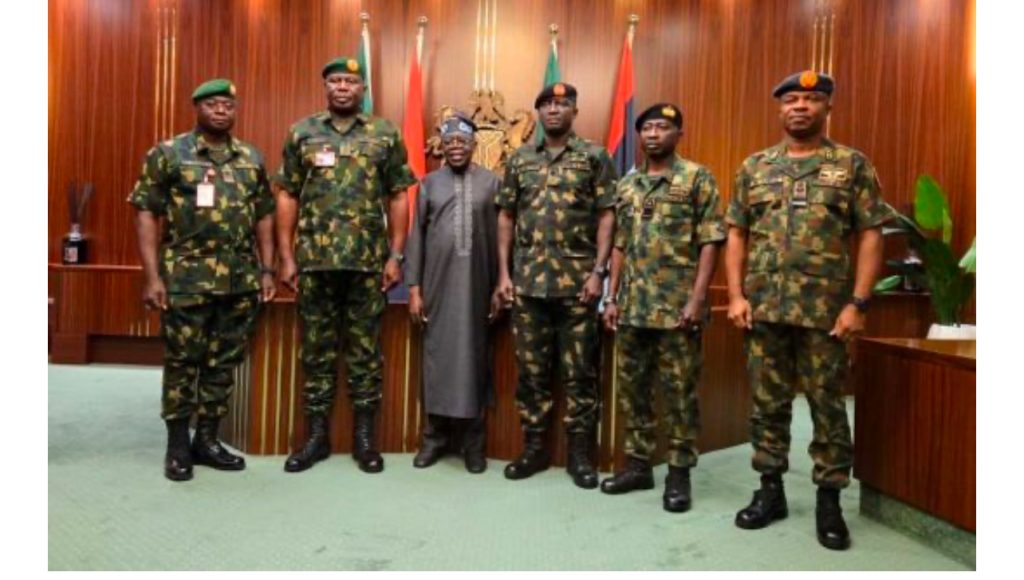
President Bola Ahmed Tinubu has decorated the new Service Chiefs with their new ranks in the military to suit their new positions.
The newly decorated handlers of the nation’s Armed Forces include Lieutenant General, now General Olufemi Olatubosun Oluyede, as Chief of Defence Staff; and Major General now Lieutenant General Emmanuel Undiendeye Undiendeye as Chief of Defence Intelligence (CDI).
Others are Major General, now Lieutenant General Waidi Shaibu as Chief of Army Staff (COAS); Air Vice Marshal, now Air Marshal Kevin Aneke as Chief of Air Staff;
Service chiefs pledge improved security, local arms production, technology use
Tinubu last Friday announced the replacement of the Service Chiefs, a move that has been attributed to the need to refocus and strengthen national security.
While commenting on his action, President Tinubu, in a post on his verified X handle, charged the new military chief helmsmen to “deepen professionalism, vigilance, and unity within our Armed Forces as they serve our nation with honour”.
Tinubu decorates Service Chiefs with new ranks
Tinubu decorates Service Chiefs
President Bola Ahmed Tinubu has decorated the new Service Chiefs with their new ranks in the military to suit their new positions.
The newly decorated handlers of the nation’s Armed Forces include Lieutenant General, now General Olufemi Olatubosun Oluyede, as Chief of Defence Staff; and Major General now Lieutenant General Emmanuel Undiendeye Undiendeye as Chief of Defence Intelligence (CDI).
Others are Major General, now Lieutenant General Waidi Shaibu as Chief of Army Staff (COAS); Air Vice Marshal, now Air Marshal Kevin Aneke as Chief of Air Staff;
Service chiefs pledge improved security, local arms production, technology use
Tinubu last Friday announced the replacement of the Service Chiefs, a move that has been attributed to the need to refocus and strengthen national security.
While commenting on his action, President Tinubu, in a post on his verified X handle, charged the new military chief helmsmen to “deepen professionalism, vigilance, and unity within our Armed Forces as they serve our nation with honour”.
-

 news5 years ago
news5 years agoUPDATE: #ENDSARS: CCTV footage of Lekki shootings intact – Says Sanwo – Olu
-

 lifestyle5 years ago
lifestyle5 years agoFormer Miss World: Mixed reactions trail Agbani Darego’s looks
-

 health5 years ago
health5 years agoChairman Agege LG, Ganiyu Egunjobi Receives Covid-19 Vaccines
-

 lifestyle4 years ago
lifestyle4 years agoObateru: Celebrating a Quintessential PR Man at 60
-

 health5 years ago
health5 years agoUPDATE : Nigeria Records 790 new cases of COVID-19
-

 health5 years ago
health5 years agoBREAKING: Nigeria confirms 663 new cases of COVID-19
-

 entertainment9 months ago
entertainment9 months agoAshny Set for Valentine Special and new Album ‘ Femme Fatale’
-

 news6 months ago
news6 months agoBREAKING: Tinubu swears in new NNPCL Board


